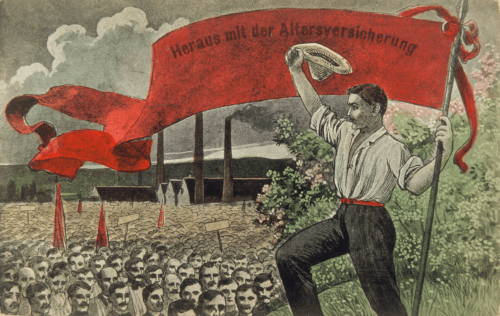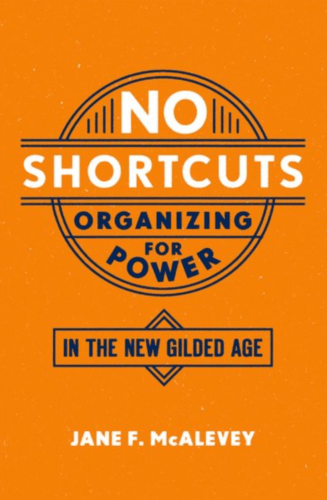So, I’m involved in a labor working group with the Iowa City DSA! We’ve just started reading Jane McAlevey‘s book No Shortcuts in a reading group as a part of our efforts. As it happens, that book was on my earlier summer reading list! Have any of you read it? Here are some quick questions that came to mind while I was reading.
3 Issues from No Shortcuts
1. Agency and Structure
As workers and community members, to what extent do we control the success of our movements and to what extent is that success directed or determined by external forces? McAlevey’s focus in No Shortcuts is very much on worker agency, and to do so she assumes we have a lot of it. Do we? And where are the limits?
One of my favorite books on activism is Poor People’s Movements by Frances Fox Piven and Richard A. Cloward. They focus on the interrelations between agency and structure. One key point they make is that popular movements succeed when they organize, as McAlevey also points out. But that’s a necessary condition, not a sufficient one. Successful movements also require the right opportunity, or structural conditions that are right for the movement to succeed.
How do we handle that latter issue? Are there things we can do to bring about the right conditions? Surely we don’t have to just wait for them. But we surely also have to look for those conditions and pay attention to whether and how they’re present.
2. The Site of Organizing
McAlevey’s lessons and cases are mostly about organizing in a workplace. Particularly a workplace with a fixed (or relatively consistent) number of staff. She talks a lot in No Shortcuts about the point of reaching the workforce and building majority support.
These are great lessons for workplace organizing, but more difficult to apply to organizing working class people across workforces or who might be temporarily out of the workforce. It raises for me the issue of which site or sites to focus on. Ought local socialist groups try to focus on particular workplaces and take advantage of the fixed numbers? Or should we try to organize more broadly and try to work around any disadvantages that come from lack of an obvious bargaining unit? Or should we do both?
3. Alinskyism
McAlevey’s none too impressed with Saul Alinsky, particularly the sort of movements he advocates for in works like Rules for Radicals. For the record, I tend to agree that Alinskyist movements have their problems. In particular, for me, it’s the lack of a commitment to a socialist direction and the clarity and guidance that comes along with such a commitment.
How do we, then, avoid the mistakes of Alinskyism, e.g., building movements around enthusiastic people rather than organic leaders, allowing organizers to lead as a shadow force, etc.?
Note
Of course, this list is hardly exhaustive. These are just a few things that came to mind as I re-read No Shortcuts. Anything else about the book you wanted to mention?




